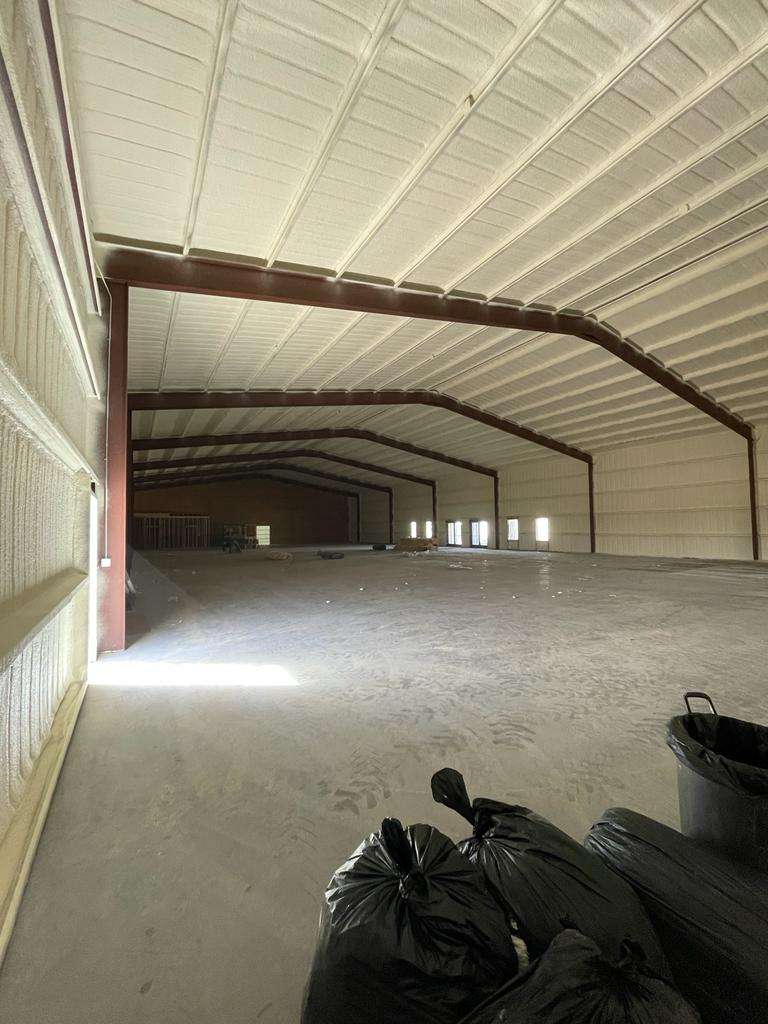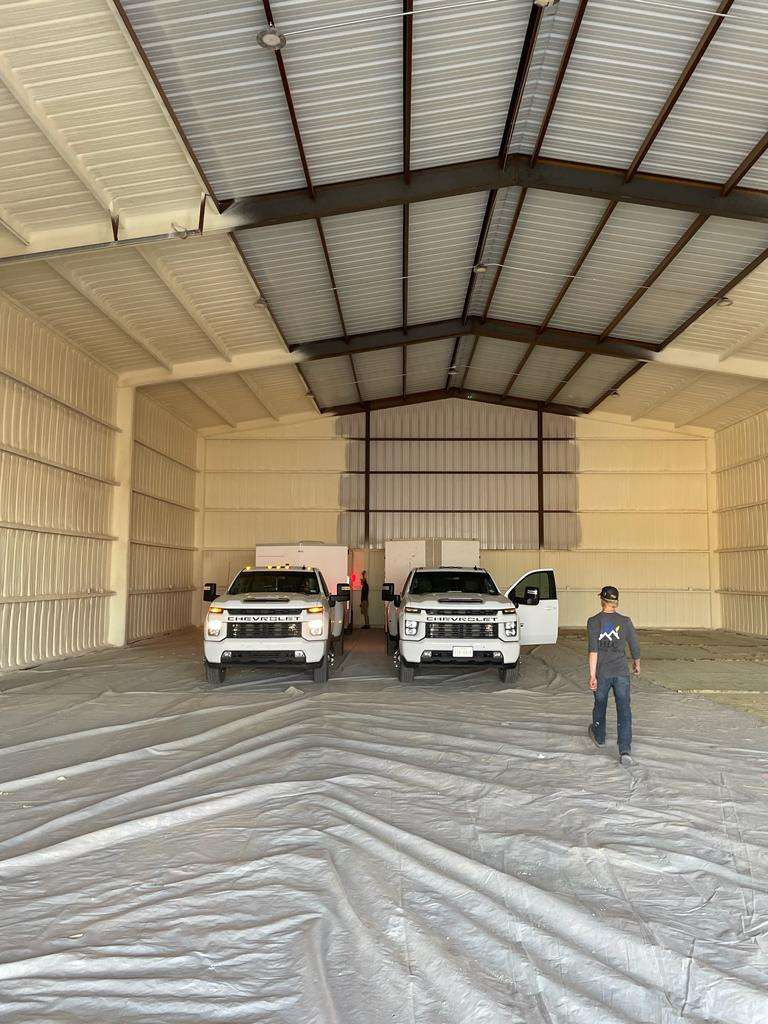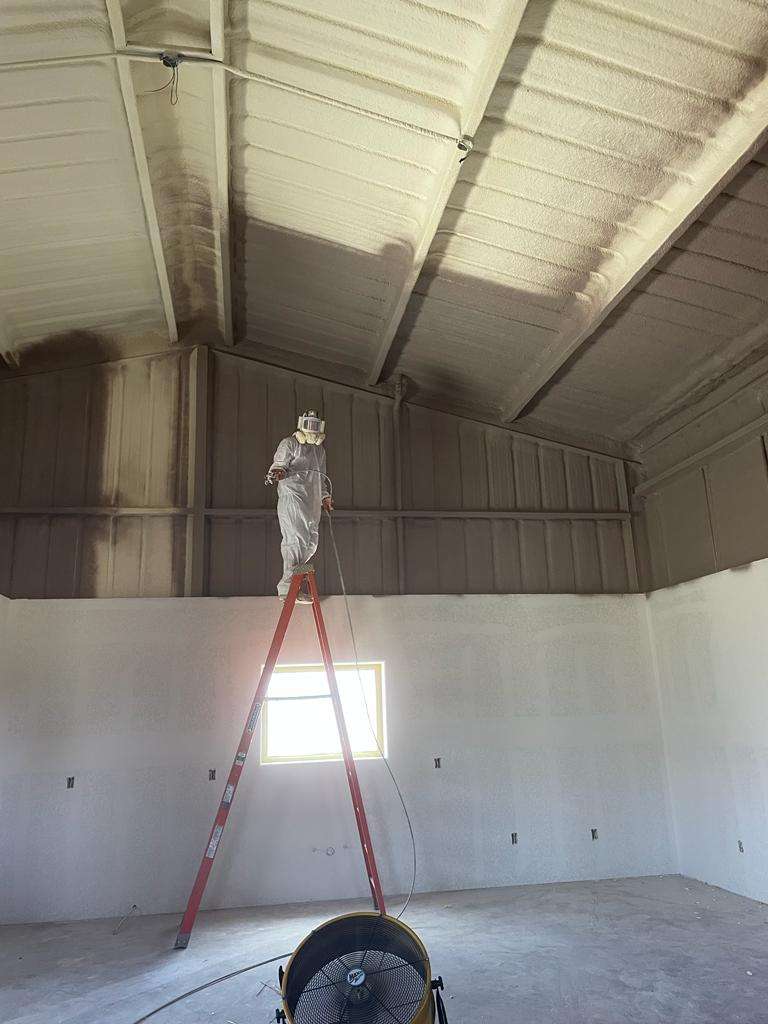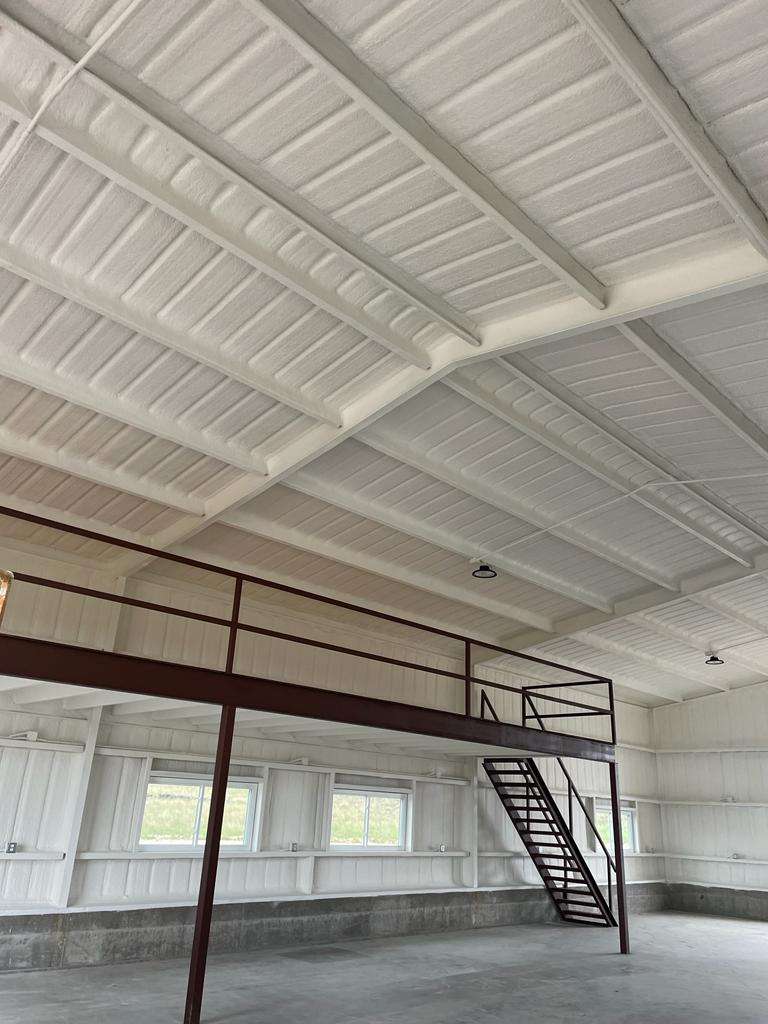Spray Foam Insulation




Benefits of Spray Foaming
Spray foam insulation offers a host of advantages that make it an exceptional choice for both residential and commercial applications. With its high R-value, spray foam provides superior thermal insulation, ensuring comfortable indoor temperatures while reducing energy bills. Its ability to seal gaps and cracks creates a formidable air barrier, effectively preventing drafts and heat loss. Beyond energy efficiency, spray foam’s moisture resistance guards against water damage and mold growth. Its durability ensures a long-lasting solution that requires minimal maintenance. Spray foam’s versatility allows it to conform to various surfaces and tight spaces, while its sound insulation properties contribute to a quieter indoor environment. These benefits, along with its potential for structural support, allergen and pest control, and environmental considerations, make spray foam a smart choice for those seeking efficient, sustainable, and comfortable living or working spaces.
High R-Value
Spray foam has a high insulation value (R-value) compared to other insulation materials. This means it provides excellent thermal resistance and helps keep indoor spaces warmer in winter and cooler in summer.
Air Sealing
Spray foam expands to fill gaps and crevices, providing an effective air barrier. This helps prevent drafts and air leaks, improving energy efficiency and reducing heating and cooling costs.
Moisture Resistance
Closed-cell spray foam insulation is impermeable to water and can act as a moisture barrier, which can help prevent moisture-related issues like mold and mildew growth.
Longevity
When installed properly, spray foam insulation can last for the life of the building, requiring little to no maintenance.
Versatility
Spray foam can be used in various applications, including walls, roofs, attics, and crawl spaces. It can conform to irregular shapes and hard-to-reach areas.
Less Energy Consumption
By improving energy efficiency and reducing heat loss, spray foam can lead to lower energy bills.
Sound Insulation
Spray foam can help reduce noise transmission between rooms and from the outside, contributing to a quieter and more comfortable indoor environment.
Strength & Structural Support
Closed-cell spray foam can add structural strength to walls and roofs, improving their durability.
Allergen & Pest Control
Spray foam can help keep out allergens, dust, and pests, which can contribute to better indoor air quality.
Environmental Benefits
Some spray foam products are environmentally friendly, using water-based blowing agents and emitting fewer volatile organic compounds (VOCs) during installation.
Closed Cell Spray Foam
Closed cell foam is the ideal pick for strong insulation, especially in tight spaces. It provides double the insulating power compared to open cell foam when used in regular walls. Its sturdy nature also strengthens the building’s structure, and there are fire-resistant E84 options available. Moreover, closed cell foam acts as a barrier against moisture, reducing the chances of water seeping into your home, and it doesn’t get damaged by water.
Best Applications
Metal Buildings
Roof Insulation
Narrow Walls
Wet Areas
Open Cell Spray Foam
A major advantage of open cell foam is its impressive expansion once it’s applied. This property makes it great at insulating those tricky, out-of-the-way spaces in a home that can be hard to reach with closed cell foam. Open cell foam is particularly useful for soundproofing, as a single application can fully fill the gaps between wall studs. In certain applications open cell foam can be more budget-friendly.
Best Applications
Custom Homes & Spec Homes
Interior Walls
Attics & Crawl Spaces
Celings
Curabitur non nulla sit amet nisl tempus convallis quis ac lectus. Lorem ipsum dolor sit amet, consectetur adipiscing elit. Proin eget tortor risus. Nulla porttitor accumsan tincidunt. Vivamus suscipit tortor eget felis porttitor volutpat. Cras ultricies lig
